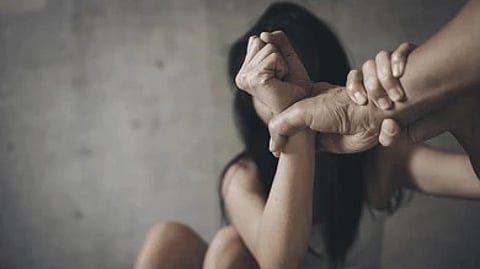
- NEWS
- the EDIT
- COMMENTARY
- BUSINESS
- LIFE
- SHOW
- ACTION
- GLOBAL GOALS
- SNAPS
- DYARYO TIRADA
- MORE

As Halloween approaches, the #WagPo campaign — a movement dedicated to preventing rape and sexual violence by empowering individuals to speak out — has unveiled its second video.
This latest installment shines a chilling light on the grim reality of sexual violence, even in spaces that victims often consider safe. It underscores a disturbing truth: the perpetrators are frequently those whom the victims trust the most.
The video, posted on Kababaihan’s Facebook page, reimagines the Filipino urban legend of Mary Cherry Chua, a schoolgirl who was raped and murdered by a janitor.
This tale serves as a haunting reminder that danger can lurk in familiar, seemingly secure places.
Unfortunately, these harrowing accounts are more than urban legends — they mirror the lived experiences of countless victims.
In Zamboanga City alone, the police have recorded nearly 100 rape cases involving minors between January and August 2024, with 85 percent of the incidents involving incest or relatives as perpetrators.
Last year, Frank Lupango, a private school teacher in Quezon City, was accused of raping a 13-year-old student — first in a classroom and again in a music room.
The Department of Education disclosed during a House appropriations committee budget hearing last year that two teachers, one in Cavite and the other in Zamboanga, faced charges for “child grooming.”
Additionally, five teachers of Bacoor National High School (BNHS) in Cavite were slapped with administrative charges in 2022 for allegedly making sexual advances on students. Screenshots of their inappropriate conversations with students circulated widely on social media, sparking outrage.
This alarming trend highlights how educators, trusted by both parents and students, can also be perpetrators of abuse. As these cases surface, it becomes clear that even schools — where children should feel safest — are not immune to the horrors of sexual violence.
Department of Justice (DoJ) Undersecretary Atty. Margarita Gutierrez, who heads various programs aimed at preventing and addressing rape and sexual violence, expressed concern over the rising frequency of such incidents.
“We are raising awareness, particularly among victims, about the importance of speaking out against those who exploit and abuse. For too long, the shame surrounding sexual abuse cases has fallen on the victims. But shouldn’t the shame rest on the perpetrators for the harm they caused? It’s time for us to reclaim our power. By using our voices, we can call out those who wronged us and demand the justice we deserve. In doing so, we not only empower ourselves but also give strength to other victims. This collective voice can serve as a warning to abusers, making them think twice because we will no longer be silent.”
Gutierrez praised awareness campaigns such as #WagPo for encouraging individuals to break the cycle of abuse.
“It is alarming that cases like these are becoming more common. Together, we must act swiftly to prevent them from becoming the norm,” she emphasized.
The #WagPo campaign empowers individuals to stand up against rape and sexual violence by encouraging them to raise their voices for those who are silenced.
It also brings attention to the resources available through Kababaihan, a newly formed organization focused on promoting inclusivity in governance and championing women’s rights. This initiative not only emphasizes the importance of prevention and support but also fosters a collective effort to create safer spaces and provide vital assistance to survivors.
To learn more about the #WagPo campaign and how you can contribute, visit www.kababaihan.com.
